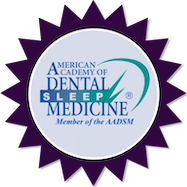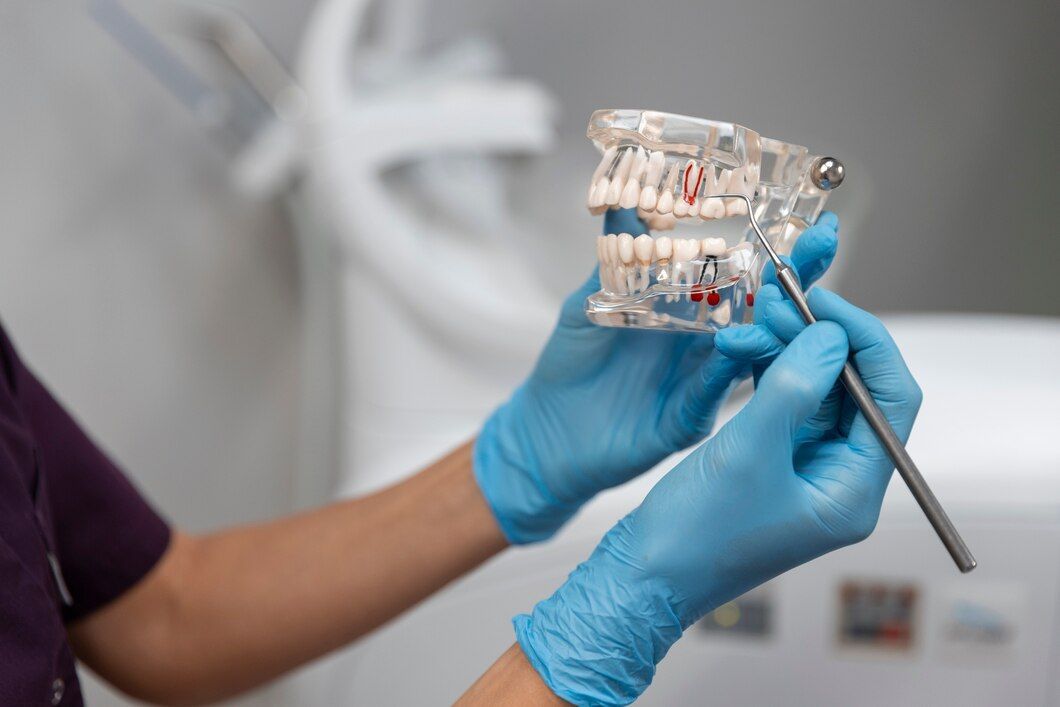Welcome to Fuller Sleep & TMJ Solutions | Greensboro, NC | frontdesk@fullersleep.com
Craniofacial Pain: Causes and Solutions from Dr. Fuller

Craniofacial pain is a complex condition that can affect your head, face, and neck areas. This type of pain can make daily activities difficult and stressful. Understanding what causes craniofacial pain and finding effective treatments is important for anyone dealing with this condition.
Craniofacial pain can come from different sources like muscles, nerves, or joints. Conditions such as TMJ disorders, headaches, or facial nerve issues can all be reasons for the pain. Often, this pain is persistent and can significantly impact your quality of life. Recognizing the root causes of craniofacial pain is the first step toward finding the right treatment that will help you feel better.
At Fuller Sleep & TMJ Solutions, Dr. Fuller specializes in diagnosing and treating craniofacial pain. With the right approach, it’s possible to reduce or eliminate this discomfort. By understanding the symptoms and how they can impact your daily life, we can help you find the relief you need.
Understanding Craniofacial Pain and Its Origins
Craniofacial pain refers to any pain felt in the head, face, and neck region. This type of pain can stem from a variety of sources, making it a complex issue to diagnose and treat. One common cause of craniofacial pain is TMJ disorders. The temporomandibular joint, which connects your jaw to your skull, can become misaligned or stressed, leading to significant discomfort.
Nerve problems can also cause craniofacial pain. Conditions like trigeminal neuralgia, which affects the facial nerves, can result in severe, shooting pain. Muscles around the jaw and neck may also contribute to craniofacial pain due to tension or injury. Additionally, dental problems such as misaligned teeth or gum disease can exacerbate the pain, spreading discomfort to other parts of the face and head.
Other factors contributing to craniofacial pain can include trauma, such as injuries from accidents or sports, and medical conditions like arthritis, which can affect the joints in the facial region. Identifying the root cause is crucial for effective treatment. Dr. Fuller uses his expertise to determine the underlying issues that lead to craniofacial pain, ensuring that you receive the most suitable treatment.
Common Symptoms and How They Affect Daily Life
Craniofacial pain can present various symptoms that impact daily life. One of the most common symptoms is persistent headaches, often centered around the temples, forehead, or back of the head. These headaches can make concentration difficult, affecting work and recreational activities.
Facial pain is another common symptom. This can range from a dull ache to sharp, intense pain, often making it uncomfortable to touch your face or chew food. Jaw pain, particularly around the temporomandibular joint, may cause difficulty in opening and closing your mouth, leading to problems with eating and speaking.
Neck pain and shoulder pain are frequently associated with craniofacial pain. The discomfort can spread from the face down to the neck and shoulders, making it hard to move your head or maintain a comfortable posture. Additionally, earaches and ringing in the ears (tinnitus) can occur, further adding to the distress and confusion about the pain's origin.
These symptoms can significantly affect everyday activities. Simple tasks like eating, speaking, or even smiling can become painful challenges. Recognizing these symptoms and understanding their impact on your life is important. Dr. Fuller is dedicated to identifying these signs and offering solutions that can help you regain comfort and functionality in your daily routine.
Diagnostic Methods Used by Dr. Fuller
Dr. Fuller uses various diagnostic methods to identify the source of craniofacial pain. Initially, the diagnostic process starts with a thorough discussion of your medical history and a detailed description of your symptoms. This helps in understanding when the pain began, its intensity, and any triggers that may be associated with it.
Physical examinations are crucial in diagnosing craniofacial pain. Dr. Fuller carefully examines the head, neck, and jaw areas, checking for any visible signs of swelling, tenderness, or misalignment. The examination may include asking you to perform certain movements to evaluate the range of motion and pinpoint areas of discomfort.
Advanced imaging techniques like X-rays or MRI scans are also used to get a clearer view of the joints, bones, and soft tissues involved. These images can reveal problems that aren't visible during a physical exam, such as joint degeneration or nerve compression. With these comprehensive diagnostic tools, Dr. Fuller can accurately identify the underlying issues causing craniofacial pain and tailor a treatment plan specifically for you.
Effective Treatments for Craniofacial Pain
Dr. Fuller offers a range of effective treatments for craniofacial pain, designed to target the root cause and provide relief. One of the primary treatments is oral appliance therapy. Custom-made mouthguards help align the jaw properly, reducing strain on the temporomandibular joint and alleviating pain.
Physical therapy is another important treatment option. Specific exercises can strengthen the muscles around the jaw, neck, and shoulders, improving flexibility and reducing tension. Dr. Fuller often recommends these exercises to help patients manage their pain at home. Avoiding stressors like hard foods and practicing good posture can also make a big difference.
Medications can also be part of the treatment plan. Pain relievers, anti-inflammatory drugs, and muscle relaxants may be prescribed to control symptoms and improve daily function. In more severe cases, injections or minimally invasive procedures are considered to provide longer-lasting relief. Working closely with Dr. Fuller ensures that the treatment plan is effective and tailored to your individual needs.
Conclusion
Craniofacial pain can be a life-altering condition, affecting your ability to eat, speak, and even smile without discomfort. Understanding the causes and symptoms of this complex pain is the first step towards finding a solution that works for you. Dr. Fuller’s expertise in diagnosing and treating craniofacial pain ensures you receive comprehensive care tailored to your specific needs.
Through careful evaluation and a personalized treatment plan, we aim to reduce your pain and improve your overall quality of life. Whether it's through oral appliance therapy, physical therapy, medications, or advanced procedures, our goal is to provide lasting relief.
If you're struggling with craniofacial pain, don't wait to seek help. Schedule a consultation with Dr. Fuller at Fuller Sleep & TMJ Solutions, a trusted
center for sleep apnea and TMJ in Greensboro, and take the first step toward a pain-free life. Let us help you regain comfort and function in your daily routines.

CONTACT US
Fuller Sleep & TMJ Solutions
1515 West Cornwallis Dr Suite 110 Greensboro, NC 27408
BUSINESS HOURS
Monday: 8am – 5pm
Tuesday: 8am – 5pm
Wednesday: 8am – 5pm
Thursdays: 8am – 2pm
All Rights Reserved | Fuller Sleep & TMJ Solutions
© 2023 All Rights Reserved | Fuller Sleep & TMJ Solutions
Website designed by: Morningdove - Accessibility Statement












